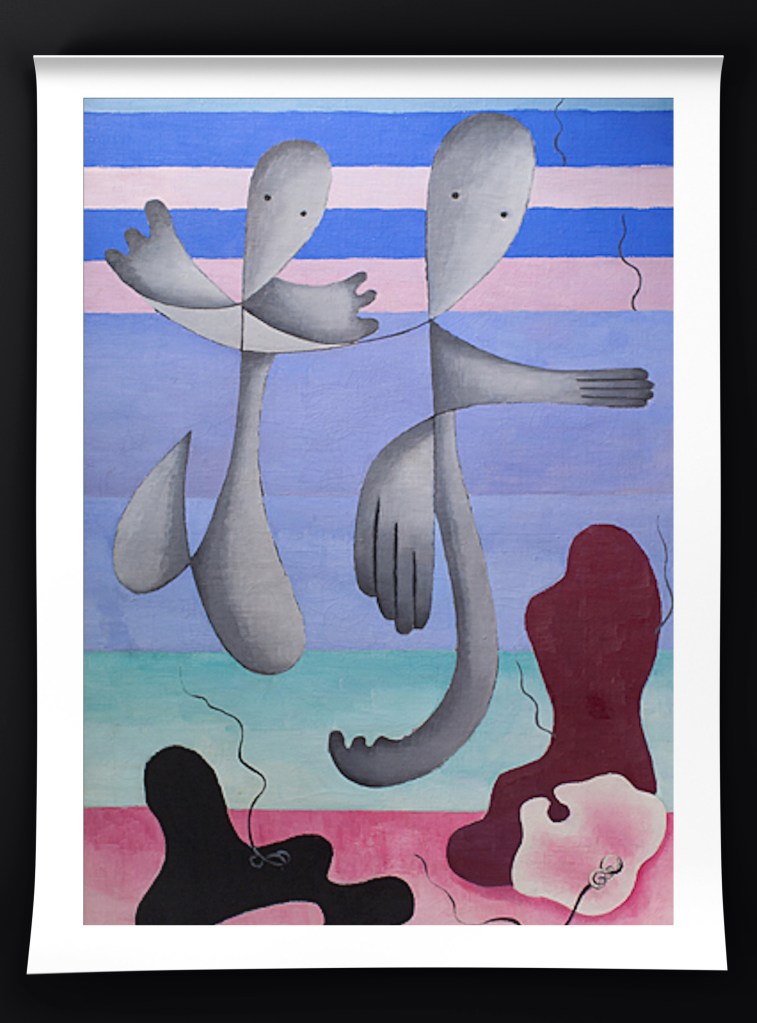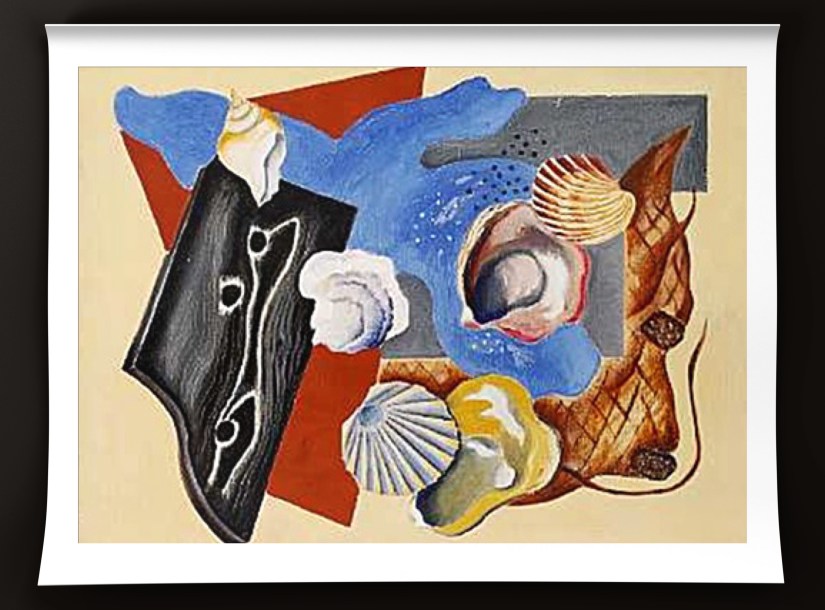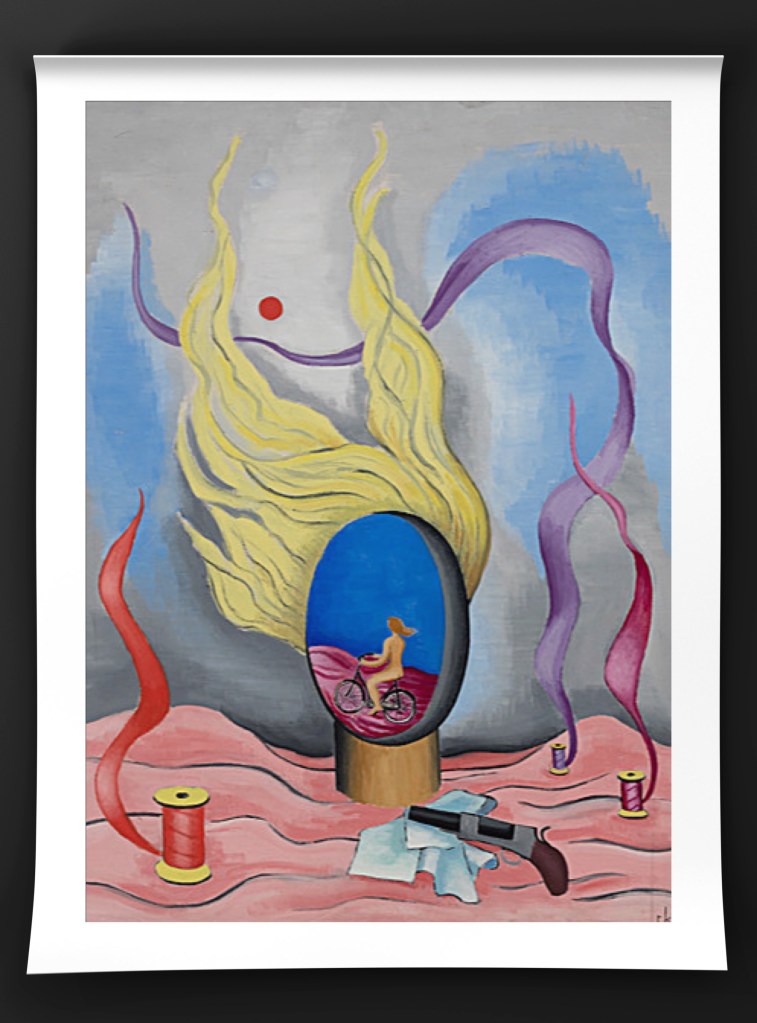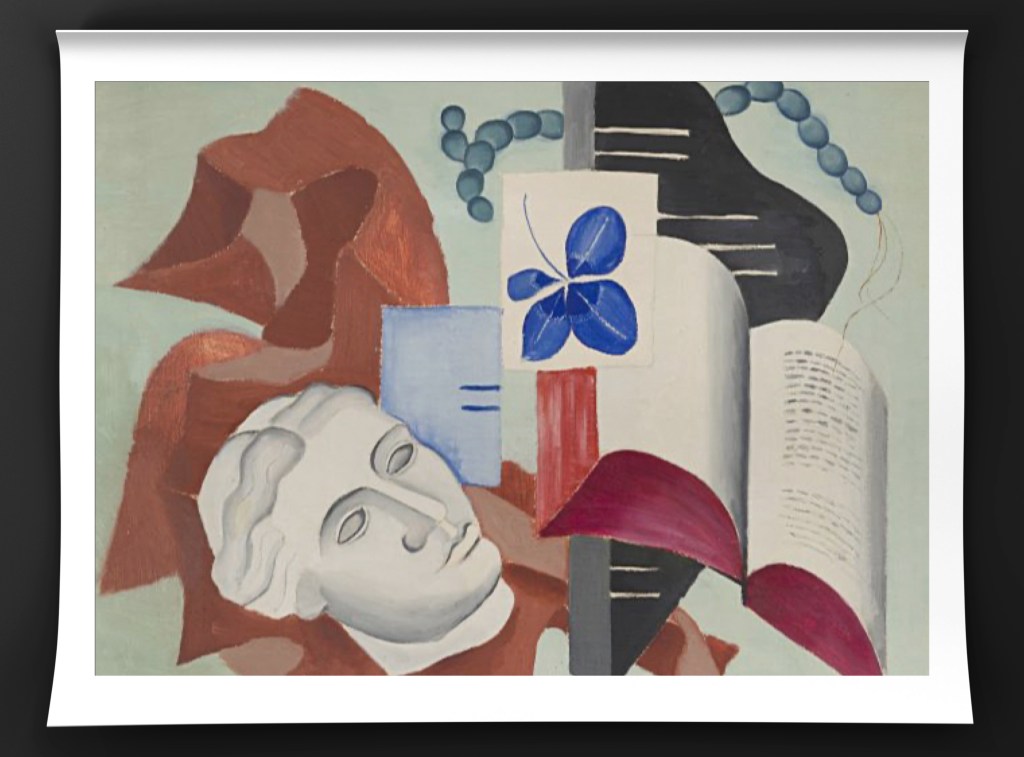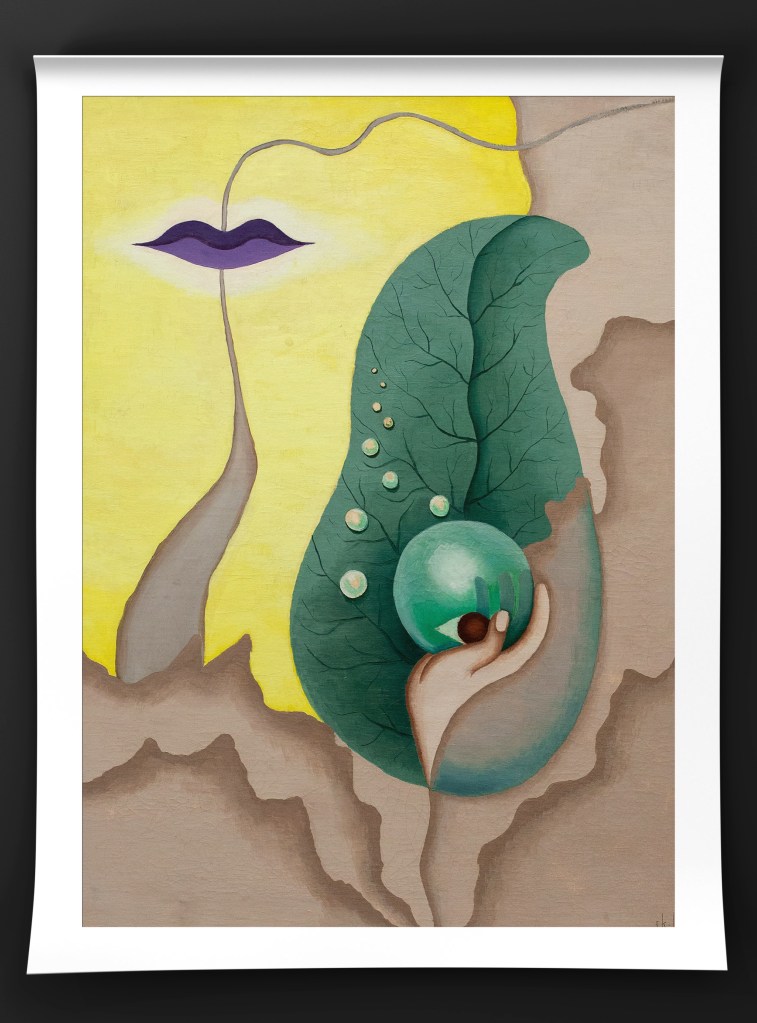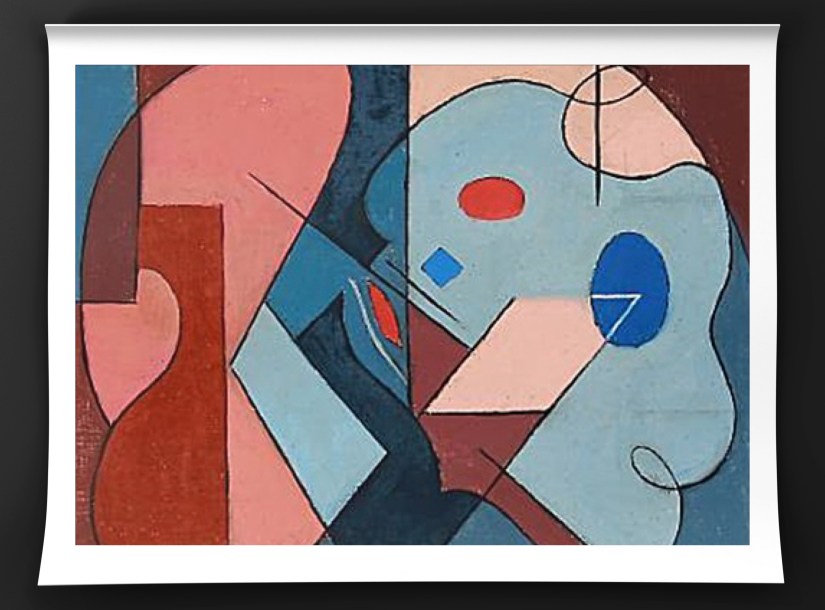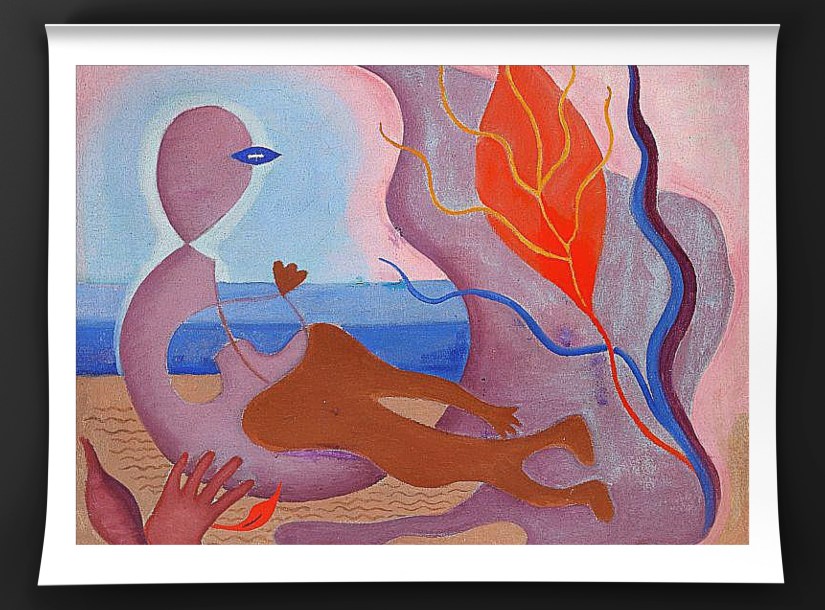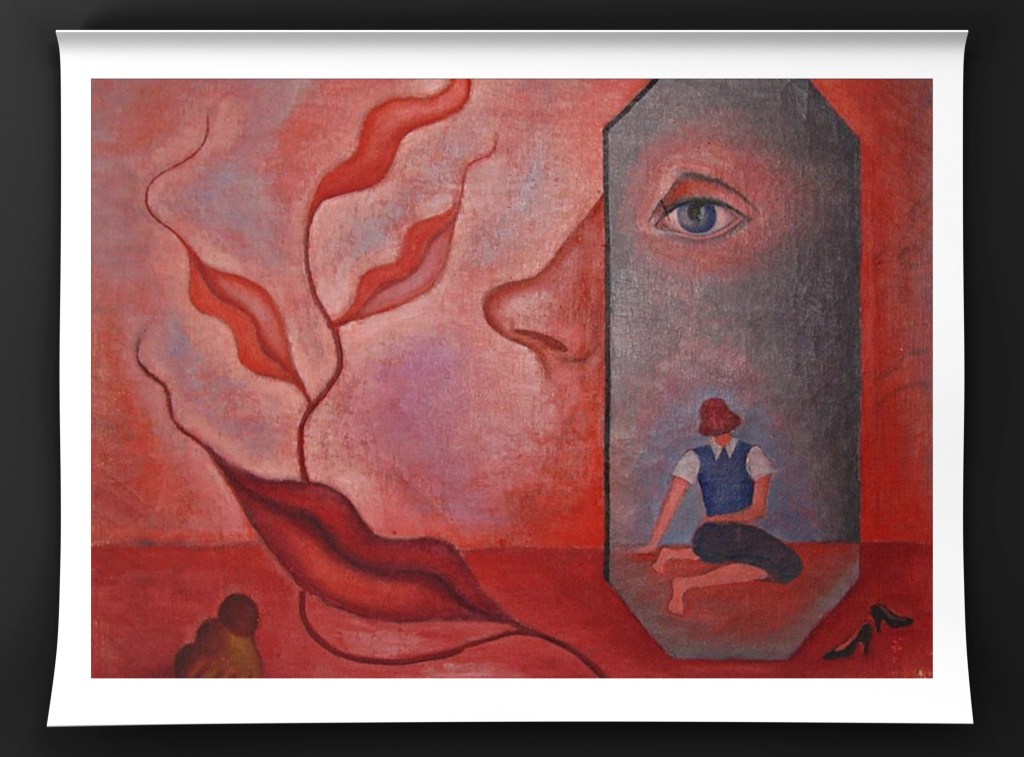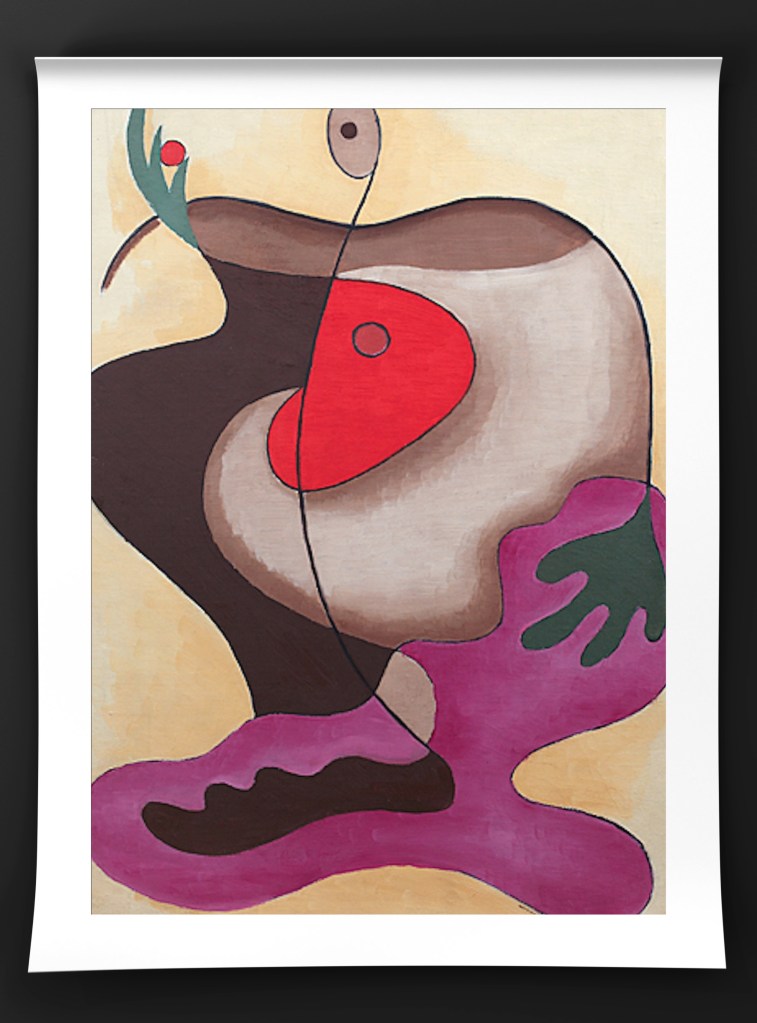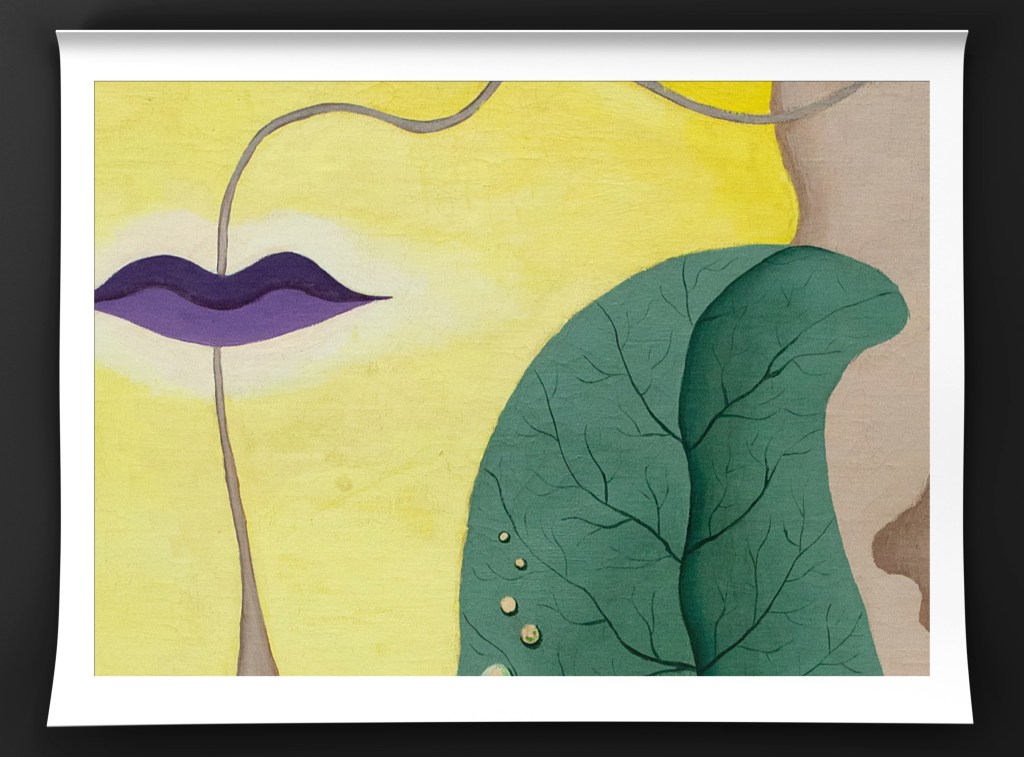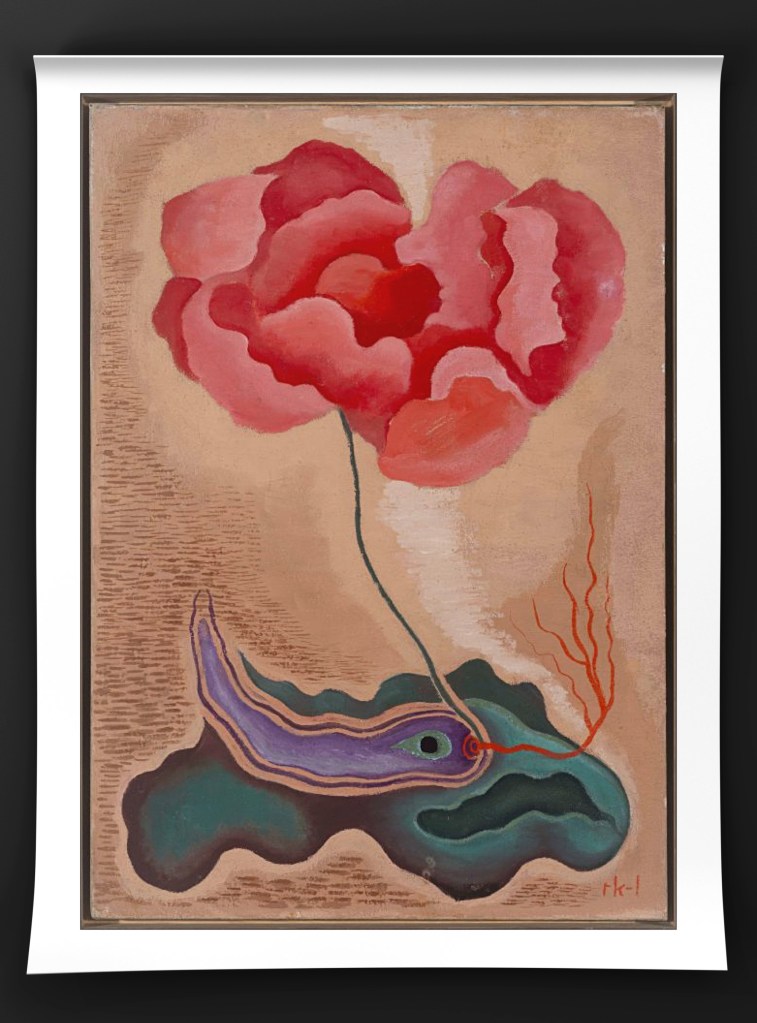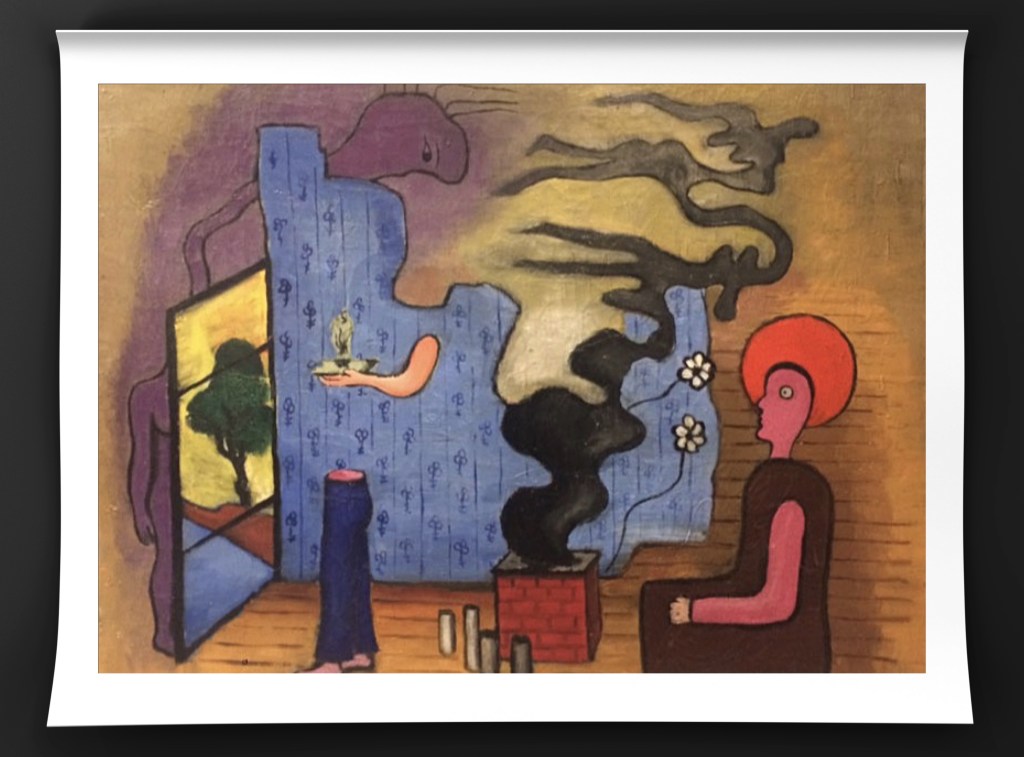刊 首 語
如果要用一種顏色
來形容安娜的詩
我想藍色也許最恰當不過了
虽然她在《我的口音》中
力圖“展示更柔和的藍”
但她詩歌中所流瀉著的
一種無法掩飾的情愫
仍似憂山下隱隱而上的藍煙
彌漫於字裡行間
-Vivian雯-
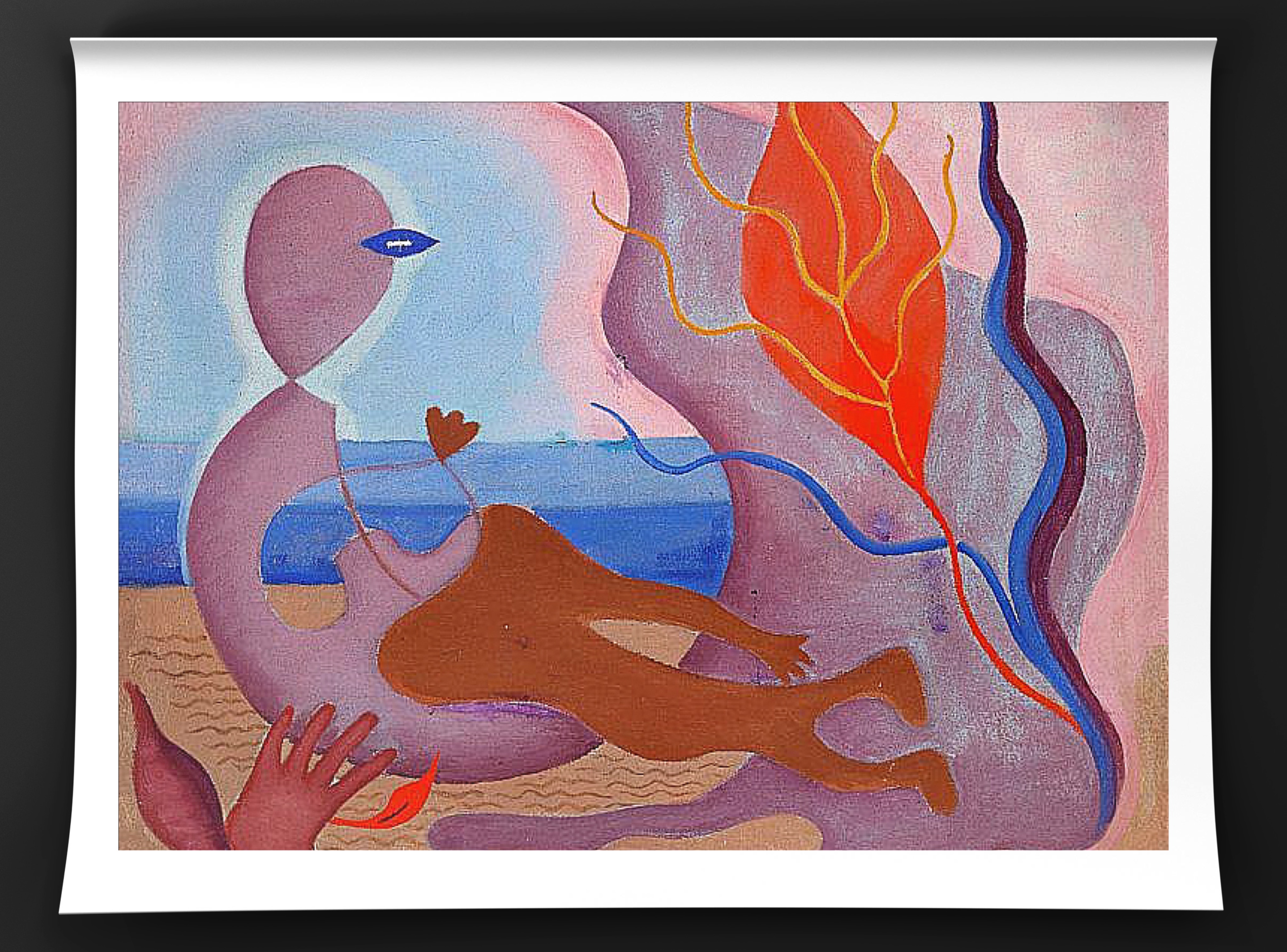
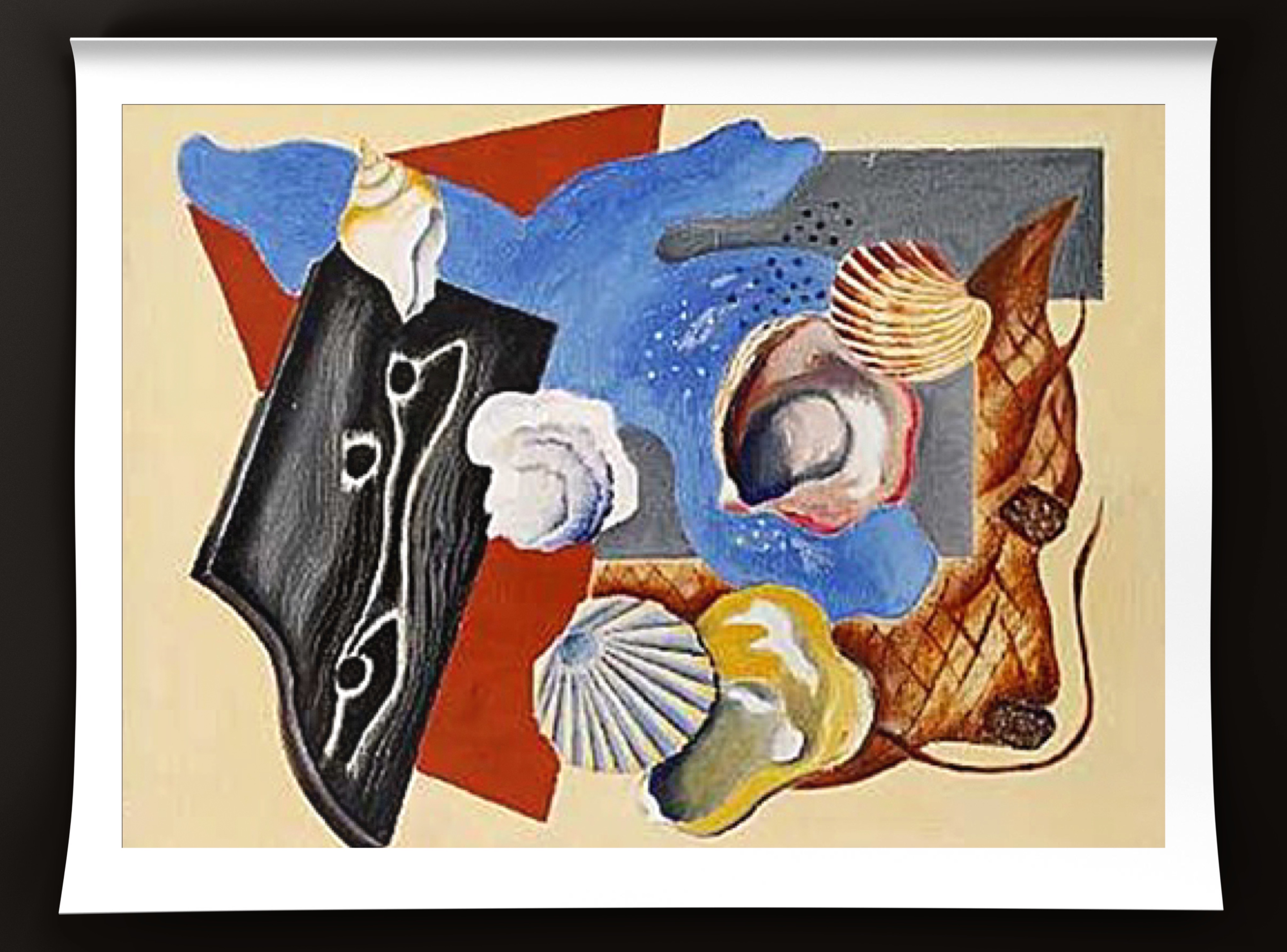
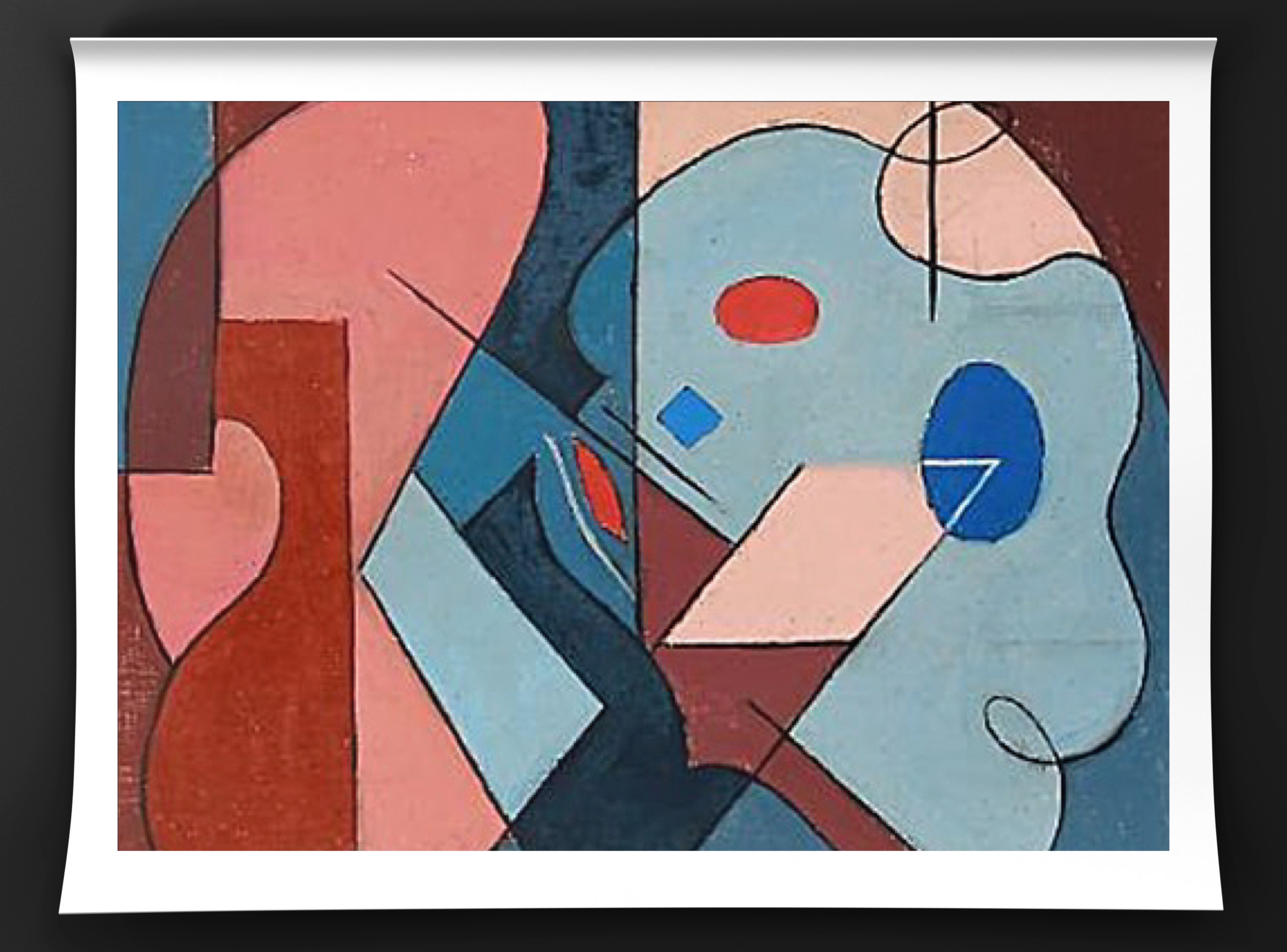
《愛的燈塔》詩歌精選

【作者簡介】星子安娜,加拿大密西沙加市首任桂冠詩人, 現有六本詩集, 英文詩榮獲2005 年安省的Ted Plantos 紀念獎,2010/2014 MARTRY文學獎以及2016/2017年獲西切斯特大學詩歌大會獎學金和安省藝術協會獎金。她的詩歌在ArcPoetry,紐約時報,中國日報,CBC電臺,世界日報發表。安娜也在學校,圖書館教授詩歌。
Anna Yin was Mississauga’s Inaugural Poet Laureate (2015-2017) and has authored five collections of poetry. Her poems/translations have appeared at ARC Poetry, New York Times, China Daily, CBC Radio, World Journal etc. Anna won the 2005 Ted Plantos Memorial Award, two MARTYs, two scholarships from West Chester University Poetry Conference, three grants from OAC and 2013 Professional Achievement Award from CPAC. She performed her poetry on Parliament Hill and has been featured at 2015 Austin International Poetry Festival and 2017 National poetry month project etc. She teaches Poetry Alive at schools, colleges and libraries
回憶就像房子有著前院,後院,你卻想著多加幾個窗戶。。。
住在房子裡的女人
你總在門口徘徊,
用兩種語言呼吸。
回憶就像房子有著前院,後院,
你卻想著多加幾個窗戶。
其實無所謂空間增值,
更沒有美化價值,
除了你住在這裡。
風把門彈來彈去——
影子在月光中打撈。
總有一天,你倦了。
掛牌等著房子出售。
在別處的故事,門背後
耳語不斷另一種語言。
他們不知道你去了哪兒——
而雨如簾子一樣,
裹在你的臉上。
The Woman within Her House
Around the doorway, you wander,
breathe in two languages.
Remembrance is a house
with front and back yards.
You want to add more windows.
Not for increasing its value,
nor to make it pretty.
Just because you live there.
The wind swings the door open—
shadows float in moonlight.
Someday you’ll get tired
and list the house for sale.
But somewhere else, behind a door,
whispers imitate languages.
Nobody knows where you have been—
the rain is like a curtain,
your face veiled.
平躺床上 我們像兩隻比目魚。。。
紅莓
平躺床上
我們像兩隻比目魚。
窗外,星星更老了。
月亮這個白色的繭
在河面投下自己的影。
在稀疏的陰影中
柳樹單薄著搖晃。
沿著帶刺的欄桿
紅莓紅得流血。
她們記得
曾經像火一樣
吸引著畫蛾子
扇動翅膀
撲向愛情。
Raspberries
On our bed
we lie like flatfish.
Outside, stars grow older.
The moon, a white cocoon,
casts its image on the river.
In sparse shadows
a willow dangles.
Along the thorn fences
raspberries bleed.
They remember
once being the fire
drawing the moth
flapping its wings
to flames of love.
而李白沉沒在銀色的河水中,再也不見身影。。。
讀特德修斯的月亮
月亮,我墜入了你的愛河。
看著你好似羞澀的藝術家
退回到夜幕裡。
聆聽著秋夜,你悄然
出來,手裡拎著一個圓桶。
月亮,他們都已離去。
獨留下你照看著
夜色裡的長河。
多少年過去了?
你看著小小的村莊
成為漂浮的島嶼。
在行行的窗戶之間,
黑夜流動,而我難以成寐。
我多想模仿李白,
依著他的長衫曼舞,
伴著燃燒的心輕唱。
每晚都來邀請你共飲。
美酒不會幹涸,
而李白沉沒在銀色的河水中,
再也不見身影。
月亮,提起你的圓桶,
再一次出來吧,
我會安靜得不弄出半點聲響。
After Reading Ted Hughes’ “Full Moon and Little Frieda”
I fall in love with you, Moon,
seeing you step back like a timid artist.
Listening to the night,
you come out, a pail lifted.
Moon, they are gone.
They left you watching over the river.
How many years since?
And you watch the small village
becoming a floating island.
Among rows of windows,
the night flows, and I’m wide awake.
How much I want to imitate Li Po,
dancing with his white sleeves,
a humming from his burning heart,
night after night inviting you for a drink!
The wine never drained,
yet he drowned in the silver river.
Moon, lift your bucket,
come out once more.
I won’t make a sound.
它們要麼面對刀子 要麼等著爛掉。。。
靜物
一幅水果畫掛在
我們客廳的墻上
早晨的太陽很少眷顧,
只有昏睡的月亮來賞臉。
午夜醒來,
我发現自己的黑色輪廓
徘徊在那些等候的蘋果上。
我為它們痛惜,
不比在廚房盤子里充當美味更好——
它們要麽面對刀子
要麽等著爛掉。
Still Life
A painting of fruit hangs
on the wall of our living room.
Morning sun seldom comes here.
Moon offers a drowsy face.
Awake at midnight,
I find my silhouette drifting
on the waiting apples.
I mourn for them,
no better than their succulence on a kitchen plate—
Either they face the knife
or wait to decay.
我的口音長成樹木, 小陌和蜿蜒的道路 通往西海岸的風景。。。
我的口音
它是迷人的。
我向你保證。
我也這樣保證自己,
並且選擇相信如此。
語言有各種顏色,
我想展示我柔和的藍。
但你的刀叉切下去,
比我的筷子點擊更快。
我的口音長成樹木,
小陌和蜿蜒的道路
通往西海岸的風景。
它指向敞開的天空;
但雲層沉重
並形成雨滴。
我的書頁收集他們
卻在沉默中風幹。
很多次在開口之前
我猶豫良久。
現在它生出牙齒。
即使加雜著齒距,
我決定
—— 這是我的聲音。
My Accent
It is charming.
I assure you,
I assure myself;
and choose to believe so.
Languages have colors.
I want to show you my tender blue.
But you cut off with fork and knife,
quicker than my chopstick taps.
My accent grows trees,
trails and winding roads to
westcoast landscape.
It points to the open sky;
yet clouds are too heavy
and form raindrops.
My papers collect them
then dry in silence.
I have hesitated many times
before speaking;
now it develops teeth.
Even with gaps between,
I decide
—this is my voice.
父親最後的揮毫,像是庇護異鄉的“我”,免於日子清貧地晾曬。。。
父親的家譜圖
紙上的一小點墨跡,
在父親的眼里長出青綠的枝椏。
吸著長長的煙袋,
暮色中,
父親勾畫滿腹的身世。
我可以感覺他的微笑,
在枝葉沉澱的郁香中
漸漸綻放。
而今他最鐘愛的
在他的筆下煜煜生輝。
兒子,年輕有為的高級軍官
女兒,備受尊敬的知名學者
(父親極盡描摹著細節,就像母親
精心裝飾著聖誕樹)
然後,我,新興詩人。
父親並不認識詩人,
對他而言,“新興”多少有點苦樹皮的味道。
(我可以感覺到他筆的停滯)
而後,在“我”的邊上浮現
一顆亮亮的晶體
鮮明地映射出“海外工程師”注釋。
父親最後的揮毫,
像是庇護異鄉的“我”,
免於日子清貧地晾曬。
卷起這張微亮著的筆墨,
我把溫暖留在胸間——
某年豐收後,
從層層蠶繭的心,
我要抽出新的卷軸。
My Father’s Family Tree
It all started from an ink spot,
my father took it as a sprouting bud.
Sucking on his pipe,
he drew his long narrative
on a piece of paper.
I can sense his smile,
as leaves spread their dense fragrance:
always his favourite,
now highlighted by a brush —
son: a high-ranking officer,
daughter: a respectable scholar,
(my father decorated each with details
like my mother’s Christmas tree),
then me, the would-be poet.
My father has never known poets,
and, to him, “would-be” is worse than rough bark.
(I can feel his pause)
then, a tinted soft orb beside me:
“engineer abroad” perfectly mirrored.
My father ensured his final touch
to free me from starving.
I roll up this glowing paper,
and place its warmth on my chest —
Someday at harvest,
out from the chrysalis of my heart,
I shall start a new scroll.
那些走在我們前面的 是去察看, 並給我們留位。。。
雪 ——給姐姐
這真是奇跡。
醫生告訴我們
你不會等到雪季。
但今年,在我們溫暖的南方
冬天來得特別早。
我們急著從衣櫃中取出毛皮大衣,
既高興又擔心——
沒有人能預測試天氣和未來。
新聞報導,某個地方出現
從未有過的洪水,
另一個卻反常幹涸。
當我們年輕的時候,
我們是如此期待下雪。
尾隨著你,我們爭做雪天使,
我的總是最小。
天堂會下雪嗎?
沒有人告訴我們。
你說,那些走在我們前面的
是去察看,
並給我們留位。
Snow for my sister
It must be a miracle.
The doctor told us
you wouldn’t make the snow season.
But this year, in our warm south
winter comes earlier.
We rush to get fur coats from closets.
We are both happy and worried —
no one can predict the weather
and the future any more.
In the news, somewhere where
there are never floods;
now it is under deep water.
When we were young,
we waited for snow eagerly.
Following you, I made snow
angels, mine always smaller.
Does it snow in heaven?
Nobody tells us.
Those who go before us, you say
go to check
and save a place for us.
而秋色已停不住腳步,泊進漆黑的夜。。。
因為風的緣故
故鄉的白楊
瘦成一排影,
空曠的枝
潛入我的夢。
我只有滿懷的楓葉,
剛剛落下,
帶著我手的余溫。
它們低低傾訴 ,
一整個夏,余蔭深深。
我把它們帶進溫室。
一葉一葉地裁剪,
衣裙一樣盛開在
我裸露的心房。
我想象 它們需要溫暖。
而秋色已停不住腳步,
泊進漆黑的夜。
我豎成一夜的燈柱,
不斷旅行的光
照亮了多少前路,
我反覆告訴自己——
冬天來了,春天還會遠嗎?
Because of the Wind
The poplars in my hometown
as slim as shadows,
bold branches
sneak into my dream.
Yet I have full hands of maple leaves
just fallen
with my body warmth.
They rustle quietly,
reminiscing of summer shade.
I carry each into my room,
sew them one after another.
Dressing them on my naked skin
I imagine they desire warmness.
Yet the fall cannot stop its footsteps,
and descends into the cold night.
I stand like a beacon.
Light travels to shine on the faraway road.
I repeat to myself —
If Winter comes, can Spring be far behind?
當誘惑充滿危險,關上門,她細細傾聽。。。
家庭相冊
他們敘說——
我的哥哥,一匹黑馬,在夢想中奔跑,
從農村到城市,無數看不見的障礙 ——
我的兄弟,懷著白馬的夢。
他們嘆息——
我的姐姐,一棵李樹,挖掘深厚的根基準備收成
惡劣的天氣和土壤貧瘠辜負了她,
我的姐姐,被冬天的松枝包裹。
他們指認——
我的父親,一頭金色的獅子,
身懷王國不斷翻滾咆哮 –
但黑暗降臨,視力喪失,
我的父親,沉默的羔羊。
他們发誓——
我的母親,一座木頭房子,
穿過窗戶瞭望霧蒙蒙的道路。
當誘惑充滿危險,
關上門,她細細傾聽 ——
我的母親,夜晚的安息處。
而我,一只醜小鴨,身著外國語的外衣,
一朵蒲公英,帶著自由飛翔的意志,
一把鋒利的剪刀,切下紙的陰影,
一棵睡蓮,追逐幻想。
Family Album
They say —
my brother, a black horse, trotting amid dreams,
from countryside to city with myriad invisible hurdles —
my brother, a dreamer of Pegasus.
They sigh —
my sister, a plum tree, digging deep roots for full-loaded fruit –
the harsh weather and poor soil fail her,
my sister, a winter pine closing up.
They state —
my father, a golden lion,
with a kingdom in mind; rolling and roaring –
the darkness descends, with sight lost,
my father, a silent lamb.
They swear —
my mother, a wooden house,
with windows peering through the foggy road.
When too tempted outside,
closing the door and learning to listen —
my mother, a hut for night.
And I, a grey duck, dressing in a foreign skin,
a dandelion clock, flying with a free will,
a sharp scissors, cutting paper shadows,
a water lily, setting out for fantasy.
父親照下了他的最後一張 留念-在一群被推倒的拆遷房之中。。。
父親的殿堂
當父親重建這座房子,
在每個梯階上,
他刻下他和母親的名字。
父親不是一個迷信或富有的人,
而我們都已長大,生活在很遠的城市,
他那高聳狹窄的四層建築
與我們對浪費不停息的批評一起挺立。
父親打破他的沉默,
“找到自己的樓層,呆些日子吧。”
他眨著眼睛看著我們,
“至少無法出售。”
父親的智慧被城市規劃徹底擊敗。
工作人員帶來推土機,並要求他離開。
父親爬上屋頂,拒絕搬遷。
舉起相機,父親照下了他的最後一張
留念-在一群被推倒的拆遷房之中。
我收到一份當地報紙和照片的副本。
在廢墟上方,父親看著如此渺小。
標題很醒目:“最後的殿堂”。
My Father’s Temple
When my father rebuilt his house,
on each stair he carved
his and my mother’s names.
My father is not a superstitious or rich man,
with all of us grown up and living far away,
his narrow tall four-floor building
rose with our criticisms of its waste.
My father rolled his eyeballs, broke his silence:
“Find your own floor and stay longer.”
He winked at us,
“At least none would buy.”
My father’s wisdom was defeated by the city plan.
Officers came along with bulldozers and demanded he leave.
My father climbed up to the roof, and refused to move.
Holding his camera, my father shot his last photo
among the knocked down neighborhood.
I received a copy of the photo in the local newspaper.
My father looked so small on the top of the ruins,
It was titled, “The Last Temple.”
一場雪後,這世界並沒有變得純凈,很快恢覆原來的本色。。。
我在心中築了一個雪人
一場雪後,
這世界並沒有變得純凈,
很快恢覆原來的本色。
光禿的還是光禿,
泥濘的還是泥濘。
雪花落在我的臉上
和手上,來不及去捕捉,
那美麗匆匆逝去。
在路的盡頭,
我開始在心中
築著一個雪人,
我把他安放,說,
這里是你的家,我們相伴。
入夜了,空氣變得很冷,
我無法久留,也無法帶他入室。
好想擁抱著告別,
卻擔心雪人他會融化消失,
只好揮揮手,
讓晚安輕輕飄過。
在另一個夢幻世界,
那里很多雪人,
那里世界如此純凈,
我也變成一個雪人。
I Build a Snowman in My Heart
After snowing,
this world has not become pure,
it swiftly reverts to its old look.
Bareness is still bare.
Muddiness still remains muddy.
Snowflakes fall on my face
and on my hands.
Before I catch them,
they melt away and leave no beauty.
At the end of the road,
I start to build a snowman in my heart.
I lay it down and say:
Here is your home.
We now accompany one another.
Night falls, it gets cold,
I cannot stay longer,
no way to bring him inside.
I want to embrace him with a goodbye,
but fear that he will melt and disappear,
I only can wave my hand
and say my Goodnight.
In another dreamy world,
I see many snowmen,
and the world is so pure,
I also become a snowman.
我們等待種籽風幹 发癢並流下腥紅淚滴。。。
石榴
我遞給你一盤水果。
你只要了一個石榴。
切開它,
我看到腥紅的籽。
你提取十二粒,
以同樣的方式吞下
如同 你兒子吞下藥丸。。。
他早已進入冥界,
沒有半點消息來回。
整整一年,你就像一座雕像,
塗抹著余下的腥紅。
我不知道
該如何喚醒你——
如何沖破冥王的獄門?
我們等待種籽風幹——
发癢並流下腥紅淚滴。。。
匯成紅色的河流。
那時雪會降落,
覆蓋一切,一切
連同這個故事。
Pomegranate
I offer you fruit.
You only take a pomegranate.
Cutting it open,
I see the bleeding seeds.
You take twelve, swallow them
the same way your son swallows pills…
He goes into the Underworld,
no messages back and forth.
The whole year, you remain like a statue,
wearing the rest of the seeds.
I don’t know
how to wake you up —
how to breach Hades’ gates.
We wait for the seeds to dry out —
tickling red tears… red rivers…
then snow will cover
everything, everything
even this story.
我渴望畫家的筆 把我解剖成一道道光譜。。。
梵高的畫館
從向日葵,紫羅蘭
到麥田和星空,
我沉吟良久,
孤自一人聆聽。
我渴望畫家的筆
把我解剖成一道道光譜,
隱匿於某片畫布的角落,
從那里我可以看著遊人以及自己
穿過不同的世紀,
為某種約定,某種情緒失色。
來自葵花深處,
我聽見嬰兒的啼哭.
我不敢觸摸花瓶
的幽藍,盡管背景
滿是粉色。
而星空下,教堂的鐘樓
被黑暗籠罩,
鐘聲被地心力鎖住,
我发現自己站在畫室中心,
離每一幅畫都很遠
很遠。
In Van Gogh’s Gallery
From sunflowers and violets
to the wheat field and starry sky,
I pondered and listened.
I longed for the painter’s brush
to dissect me into slices of the light spectrum,
hidden in the corner of a canvas; from where
I could watch visitors and myself
through different centuries,
with some kind of agreement,
each face’s color lost.
I heard a baby crying
from the depth of his sunflower.
I dared not touch the faint blue
vase, although the background
was lavish pink.
Under the stars, the church tower
cast shadows;
its chimes were choked by dark gravity.
I found myself standing in the center of the gallery.
Each painting seemed far
far away.
你們可以想象我們有很多的話語,裝在氣泡里。。。
祖母的警告
星光很遙遠,
那些傳說又一次被提起。
只是所有的都是過去式,
和改寫過的名冊。
我們只是淡水魚,更貼切的,
沒有遊泳證,困在魚缸的魚。
屬於天空的羽翼掛在夢里,
那里有很多國度,在詩歌中
沒有簽證必要。
你們可以想象我們有很多的
話語,裝在氣泡里,
彩色的斑斕,升得最高
也是最輕巧的,如此容易破滅。
那些沈下去的象泥鰍的黝黑,
如龜殼的堅硬,是我們息息相存
的唇齒。
而你們,輕漫地議起我們,
以為自己是堅實的城墻
以及鮮明的旗桿,
在黑暗襲來的時候,
海藻一樣想往著飛翔。
Grandma’s Warning
The legends of stars are told again,
but all in a past tense with a rewritten range.
We are just fresh-water fish―
no swim permitted,
trapped in this water tank.
Wings are hanging in dreams
where there are many countries
to traverse―with light.
We do have much to say, all
sealed in bubbles,
gorgeous colours, the higher they rise
the less they weigh, and the easier to burst.
What sinks to the bottom, dark as loaches,
hard as shells, are our lips and teeth―
closed and intact.
Yet never refer to us as thin-finned,
and think of yourselves as solid walls
and straight flagpoles;
when night falls,
we all sway like seaweeds
longing to fly.
東評西說| 中外作家談安娜作品
「星子的詩歌充實而氣韻自如、清新淡雅而又柔巧乾淨,也有暗示和張力,典型的在回憶中尋找美麗的女性詩歌。星子是湖南人,但她的詩歌里沒有屈原詩歌濃重的悲劇色彩,以及「楚雖三戶,亡秦必楚也」的壯烈,這是今天一代人的幸福使然。但是,在她的詩歌里,還是可以感受到湘楚文化里決絕淒美的回聲,同時,又蘊涵和散髮著對美好生命的熱烈。 在當今這個浮躁的白晝時代,詩歌正如清夜的星子。」
——川沙 (加拿大華語詩人協會會長)
「星子的詩作,精巧、優美、空靈、清新,把中國古典詩歌的品質帶到流暢、鮮明的英語里。她以感人和豐富的想象力,富有現代感的經驗和意識,展示了真正的跨國的聲音和情感,以及全球的人文觀和文化素養。」
——布萊思·馬斯特(加拿大,詩人,編輯)
「與普通中英文簡單互譯的詩集不同,這本詩集的獨特之處是針對同一內容的中英文的獨立創作。作者是成熟的漢語詩人,同時在英語詩人中享有盛譽。可以說這本詩集只有作者,沒有譯者。中文詩和英文詩各存異趣,交相輝映,各自承載了兩種文字的美感。這為中英比較文學提供了一個範例。」
——曉鳴(北美中西文化交流協會會長)
「與其說星子的雙語詩能游刃有餘於中西文壇,是她才華橫溢的必然,不如說是人生的歷練豐盈她的遼闊。她以詩里行間的綺麗和深思與時間抗衡,在同現實的和解中跳出現實的框架,用詩照亮自己也照亮他人。」
——姚園(美國《常青藤》詩刊 主編)
「詩人星子安娜長期在《創世紀》發表詩作,廣受喜愛和肯定。她不但中文詩寫得好,英文詩更屢獲大獎。 除了中英詩創作,她亦精於翻譯,作為一個詩人她對文字的敏銳度和詩意涵的拿捏有超乎一般譯者地表現。」
——辛牧(台灣《創世紀詩雜誌》 總編)
「星子的詩讓我想到智利詩人米斯特拉爾和意大利的黃昏隱逸派,而且也想到中國的宋朝詩。星子有平常人的心態,又經過西方自由博愛的思想洗禮,她的詩樸素親切,優美婉約,純淨自然富有妙趣。」
——溫東華(中國湖北,詩人、評論家)
「星子用細膩、清麗、質樸和有張力的語言之筆,為我們創造了一個充滿愛,充滿美,充滿寧靜和自然的精神世界。」
——何均(中國四川,詩人,小說家)
「星子一直在異國以詩歌的寧靜打量著光怪陸離、變化莫測的世界,並且渴望用詩歌給身體和靈魂找一個合適存在的位置。星子以詩歌來表述生命的行走狀態,是一種在詩意中行走,是海德格爾所說的美,這種美是在星子詩意的棲居里呈現。」
——鐘磊(中國長春,詩人、評論家)
「作為一個成熟的詩人,星子總是淡定地把自己的心思娓娓道來,一股清新,一抹黛色,總是那麼宜人。從對自然物景的描寫,到對人的情感敘述,以及自己對人生的追求,都是那麼淡定著傾注於語言中,簡單而不淺薄,由此把自己定格在從容不迫的格調上,讓自己充實而厚重,洗盡鉛華呈素姿。」
——蔡利華(中國重慶,詩人,作家)
「這種對生命的體驗由星子娓娓道來的時候,就像一股清流,自然而透徹地拂拭著每個聽者心頭躁動的浮塵。」
——明報加東版
「從我早年譯介歐美現代詩,到用漢語寫詩,用英語翻譯,再到後來用漢英雙語寫詩的經驗,我能深深感受到星子在雙語詩所展示的兩種不同文化和不同語言的體驗與結合。每首雙語詩,無論是從漢語或英語開始,都是一種再創作,而不是單純的互譯,由此帶給讀者的詩意與樂趣,遠勝過單語詩。」
——非馬(美國伊利諾州詩人協會前任會長)
「星子的作品中,古典情懷與現代精神、詩歌技巧與人性本真、異國情調與故土牽掛交織在一起,向我們訴說著一個疏離、憂傷、沈思和慰籍的詩歌語境。生活里的她率真開朗,美麗而又明媚。人與詩不尋常的分裂與一致也許正是現實與夢境的縮影以及內心深處的寫照。」
——阿九(溫哥華,詩人,近期譯著《菲利普。拉金詩全集》)
Reviews from the West:
「Beautiful verses and powerful images touched many readers.」
—Alan Neal, host, CBC Radio
「Anna Yin is a startling dreamer. Poems that seem Romantic veer into Surrealism or Symbolism. Tutored in Sylvia Plath and William Carlos Williams, among many other poets (mainly American and Canadian), Yin issues poems that are nightmare dreams or dreamy nightmares: Here’s a world where the natural becomes unnatural, the unnatural natural: “the police-monkey escorts a well-suited rat / followed by his cloned brothers…” Some poems are parables, such as the story of a man- a father-who refuses to leave his home, even while it and others are being reduced to rubble: “I received a copy of the photo in the local newspaper. / My father looked so small on the top of the ruins. / It was titled, ‘The Last Temple.’”
In another poem, the speaker says, “You are tired of his / molding, over and over, / thrashing, nailing / into you.” There’s a fierce feminism here, reinforced by readings of Dot Livesay and Dame Atwood. Though it’s tricky following Yin’s wicked, impressionistic juxtapositions, her painterly imagery is deliciously lustrous.
Yin is endlessly perspicacious, endlessly compelling: “The autumn gusts feel warm / as if it’s spring…. / last night by accident I cut my finger… / slowly, on the rice paper, red roses grew.” She brings to Canadian poetry a sense of classicism and aestheticism and minimalism, all nicely mixed up with sensuality.
Yin’s bravura poems – so exquisite and extraordinary – merit bravo upon bravo.」
—George Elliott Clarke, 7th Parliamentary Poet Laureate of Canada
「It is a beautiful book, crafted by a beautiful poet. You have a great tell-tale line. It is 「You outlive.」 Beautiful, beautiful.」
—John Robert Colombo, writer
「Anna Yin is a fine writer with a true feel for the power of nature and the healing strength of wilderness.」
—Roy MacGregor, writer and historian
「Not all poets have the talent for honing in on just the right word, but Yin possesses that rare gift.」
—Sandy Millar, Mississauga News
「In Yin’s poems, concrete things also seem to lift off their pages. Yin transforms—even transfigures—them with her imagination, through descriptions of dreams and through allusions to myths and cultural sayings…」
—Doyali Islam, editor of ARC Poetry
「The blending of East and West adds a fascinating dimension to her oeuvre. Her unique voice represents a new direction in contemporary Canadian literature.」
—Paul Hartal, painter and poet
「An authentic, direct tone brings the author’s native Chinese voice to these poems, which are charming and fresh at their best.」
—Elena Wolff, poet and editor
「Anna Yin’s delicate, sensitive and haunting poetry will sweep you off your feet, carry you to exciting, exotic places and land you right in your own backyard. From her carefully crafted Haiku, to her sorrowful, melodic, sweet verses, you will not be able to put her work down, nor will you be able to read those beautiful poems only once. You will want to read them over and over again.」
—I.B. Iskov, editor and founder of the Ontario Poetry Society
「Yin has a unique way of weaving together on the loom of her poetic vision the layered wealth of Chinese thought and culture with the probing demands of Canadian and American poetic visionaries—rare is such a combination and genius. But, there is yet a fuller synthesis. Poets and painters are called forth, in an even more cosmopolitan manner, to inform and shape the literary life of Anna Yin: Dante, Akhmatova, Van Gogh, Burns, Borges, Basho and Yeats step forward on the stage of Anna’s poetic oeuvre and speak, suggestively and wisely, of deeper and more demanding truths.」
—Ron Dart, author and professor
「To read the poetry of Anna Yin is to court the landscape of ecstasy… It is a way to 「be」, to watch nature, a vase of flowers dying with the same wonder one regards the Milky Way on a clear and endless summer night…This is the deep listening that brings to mind poets like Rainer Maria Rilke or Lee Young-Li, using nature as a guide toward stillness. Anna Yin’s stillness is one where time is not part of its alchemy. There is a classic, masterful touch, an underlying Taoist’s inscription… 」
—Lois P. Jones, poet, host on KPFK’s Poets Café and editor of Kyoto Journal.
「‘Raspberries’ is a concise exploration of a moment; a modern interpretation of the kind of classical Chinese poems in which a specific scene, thought or feeling is condensed and captured in the most economic way, yet still allows for a number of interpretations.」
—Tammy Ho, Cha: An Asian Literary Journal
「Anna Yin’s poems give us beauty in all its delicacy and its strength—a full glowing presence that sometimes, mysteriously, is just a fleeting hint, a dance of shadows. The poet of Love’s Lighthouse resolutely 「wants to add more windows」 to her house of poetry, not to increase its price, 「but just because you live there」. She realizes that her 「days are full / even tears are golden」. I love the beauty of her rhythms and the creativity of her phrasing wedded to an agile mind moving like a butterfly in a flower garden of thought: 「Into a forest / you follow a sound. / The child you are, / searches for seeds of passion fruit; / instead, leaves of autumn fall over you…」 But for a poet such as Yin, a creative and exploratory spirit, autumn cannot be just a symbol of sadness: the leaves’ 「rich colors / make a maze of wonderland.」 This is an original poet following her intuition ever deeper into the secrets of emotion and reality.」
—A. F. Moritz, 6th Toronto Poet Laurent, 2009 Griffin Poetry Prize Winner
Vivian雯 |安娜詩歌中的“藍色”

【作者簡介】Vivian雯,Wepoetry 【海外詩粹】創始人,《五洲詩軒》副社長,自由撰稿人。現居紐約,從事銀行金融業。作品發表於《世界周刊》《世界日報》《海外文摘》《21世紀財經論壇》, 編入詩歌合集《自由的奴隸》《法拉盛詩歌節作品集》《六月荷詩曆》《喊》等。
收到安娜從她的詩集《愛的燈塔》中
精選出來的十四首作品文檔時
我正在賓州休假。安娜說不急,你隨意就是了。
將近一個月的假期很快過去了,安娜的詩
我一讀再讀,卻不敢隨意落筆。
我休假時短居的房子,也有前庭後院
彼時那裡充溢著稚童的牙語和大人的歡笑。
有一天當我離開,這裏是否也會被回憶佔據?
安娜在詩歌《住在房子裡的女人》中
寫下的詩句,似乎總是在我的
門前窗外“徘徊” 。晨起時我用兩種語言
與院子裡不請自來的飛鳥和野兔搭訕
而當今夏最強的一次颶風掠過賓州上空
晃動的樹影和被風捲起的窗簾
又讓我想起安娜詩景中
“那扇被風吹動的彈來彈去的門
和在月光中打撈的影子。”
如果要用一種顏色來形容安娜的詩
我想藍色也許是最恰當不過了
虽然她在《我的口音》中
力圖“展示更柔和的藍”
但她詩歌中所流瀉著的
一種無法掩飾的情愫
似憂山下隱隱而上的藍煙
彌漫於字裡行間。有時候那是一聲
嘆息:曾經為愛“飛蛾撲火”,如今已然是
“平躺床上的兩隻比目魚”
有時候是父親揮毫下晶亮的一筆
凝結著父愛的牽掛和流於異鄉的叵測難定
這層深藍色的憂鬱令人動顏
卻也透著洞穿一切的理智和冷靜
在《靜物》中她寫牆上的一幅
水果畫上投射著的自己的暗影
和暗影中的一些靜物——
“不比廚房中的一盤美味更好”
它們無需“面對刀子”
也不會“等著爛掉。”
而獨對四壁的落寞和冷遇也許是
“力求存在”所要承受的更大的煎熬
她寫“一場雪後
這世界並沒有變得純凈
很快恢復原來的本色。”
同樣凜冽的文字
一個發自內心,一個審視周遭
都將事物的本質剖析到了極致
但在“認清了生活的真相之後”
她骨子裡積極向上的亮藍脫穎而出
她沒有因此退怯,她“依然熱愛生活”
她就像羅曼羅蘭筆下的”強者“
儘管知道“你的刀叉切下去,
比我的筷子點擊更快。”
知道一個異鄉客在不同語境中
所面臨的的落差和隔閡
但她依然相信自己,堅信
“我的口音”就是“我的聲音”
從幽靛到湛藍
從“雨如簾子,裹在臉上。”
到堅信“某年豐收後,
從層層蠶繭的心,
我要抽出新的卷軸。”
安娜詩歌中所呈現的“藍色”
向讀者展示了一個
真實而飽滿的詩人形象
而這之中貫穿的主線:“愛”
不僅僅只紀錄在她的“家譜”中
在“祖母的警告”和“家庭相冊”裡
它也同時紀錄在了異鄉的
“夜色長河”和“提著圓桶的月亮”中
它們就像一道道藍光,賦予詩
以更深厚,更悠遠
更純粹的意境了
Vivian雯 2020/08/08 於賓州
丹麥畫家| Rita Kernn-Larsen

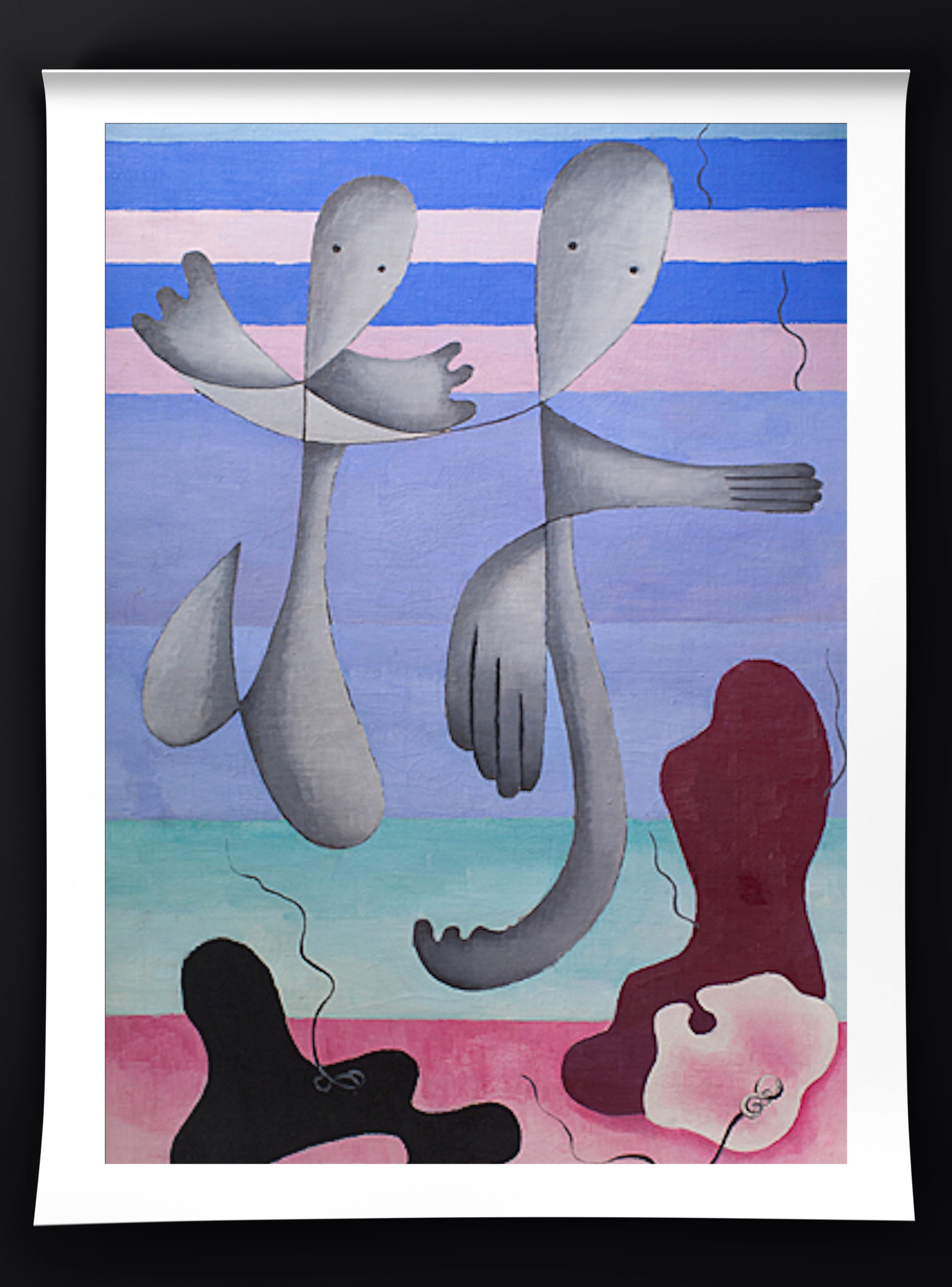
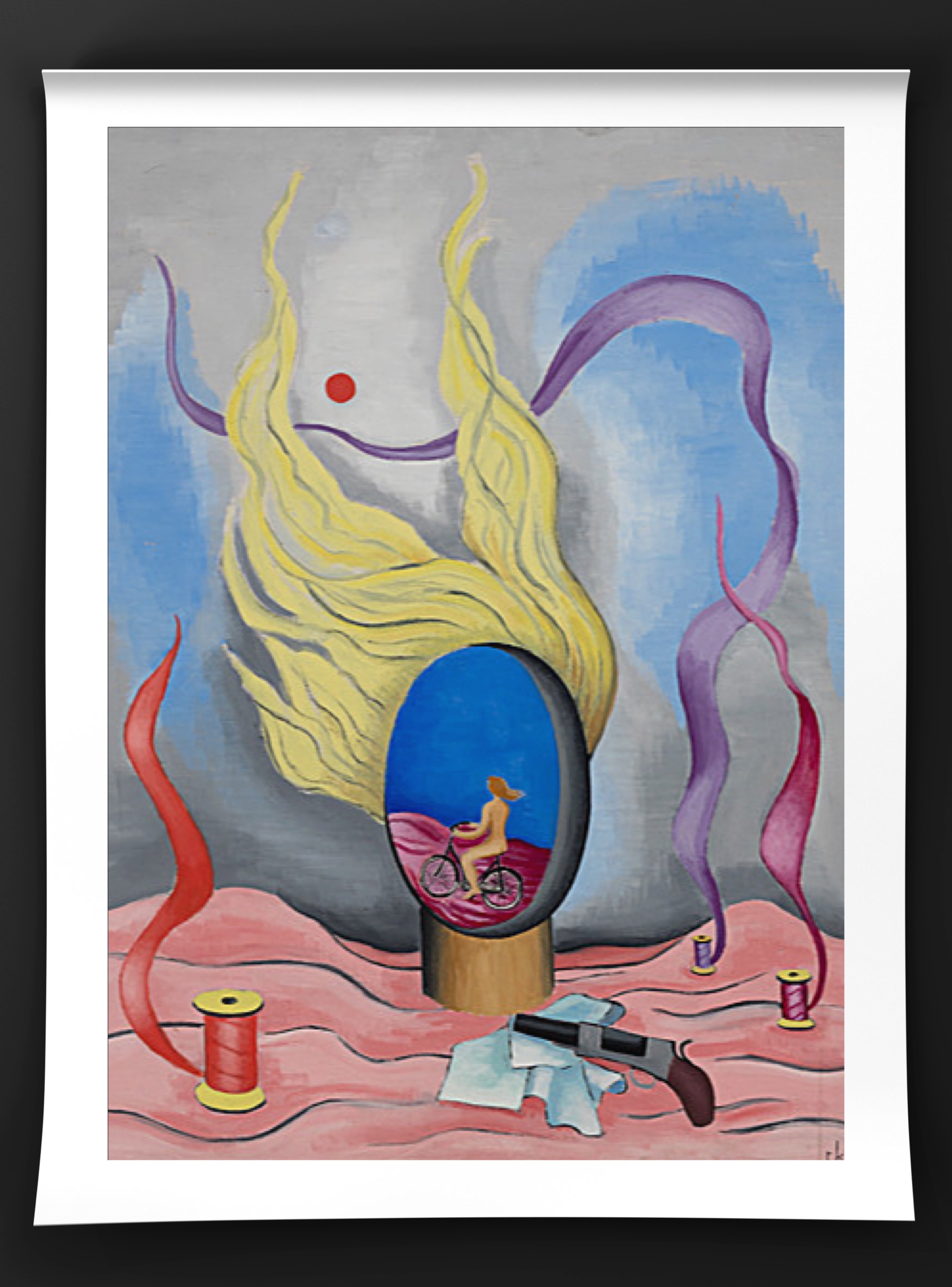
Rita Kernn-Larsen (1 January 1904 – 10 April 1998) was a Danish surrealist painter. She was born to a wealthy family in Hillerød, and attended the private Marie Mørks School there. She began to paint at a young age, and after spending time abroad in Oslo, Norway, she attended the Royal Danish Academy of Fine Arts to fine-tune her craft, but found the teachings there to be too traditional. Instead, she moved to Paris and joined Fernand Léger’s academy, studying under him until 1933, when she returned to Denmark and opened up her own studio.
Throughout the 1930s, Kernn-Larsen’s style moved from a more decorative style to surrealism. She regularly attended exhibitions as one of the only female surreal artists, including the London International Surrealist Exhibition in 1936. In 1937, Kernn-Larsen moved back to Paris and met Peggy Guggenheim, who opened a solo exhibition for her the following year in London. She remained in London throughout the war years with her husband, Jewish art dealer Isak Grünberg. At that time she departed from surrealism, focusing on a more real approach to her paintings during the war.
After the war, Kernn-Larsen moved to Saint-Jeannet, Alpes-Maritimes, France, using the Southern French landscape as a motif for her later paintings. She lived there from 1947 to 1992, and while there worked with ceramics, and published a children’s book, The Golden Village. She continued to attend exhibitions primarily in Denmark, with her last one being a retrospective in 1995 at Randers Art Museum.
Rita Kernn-Larsen(1904年1月1日至1998年4月10日)是丹麦超现实主义画家。她出生于Hillerød的一个富裕家庭,并就读于那里的私立學校MarieMørks School。她从小就开始绘画,在挪威奥斯陆呆了一段时间后,進入丹麦皇家美术学院學習,但发现那里的教学太死板传统了。於是,她去往巴黎并加入了FernandLéger指教的学院,在他的指导下学习數年,1933年她回到丹麦并开设了自己的工作室。
在整个20和30年代,Kernn-Larsen的风格从賦予装饰性的畫藝转变为超现实主义。她作为唯一的女性超现实主义艺术家之一定期参加展览,包括1936年的伦敦国际超现实主义展览。她於1937年回到巴黎,遇到了Peggy Guggenheim,第二年在伦敦为她举办了个展。在整个战争年代,她一直与丈夫犹太艺术品经销商IsakGrünberg一起留在伦敦。那时,她脱离了超现实主义,专注于在战争期间以更真实的方式審視修正她的画作。
战争结束后,Kernn-Larsen搬到法国阿爾卑斯山麓的Saint-Jeannet,将法国南部的风景作为后来作品的主题。她从1947年到1992年居住在那儿,在那里她从事陶瓷藝術的創作,并出版了儿童读物《黄金村》。與此同時她不間斷地在丹麦参加個人展览,她的最后一次展覽是1995年的兰德斯艺术博物馆回顾展。
【海外詩粹】星子安娜雙語詩選《愛的燈塔》精選中的全部图片,取自於Rita Kernn-Larsen代表作品中的一部分. 【海外詩粹】编辑部感謝Rita Kernn-Larsen及其團隊的无私共享,谨向这位傑出的超現實主義畫家致以崇高的敬意!
感 謝 作 者 授 權
*【海外詩粹】星子安娜雙語詩選《愛的燈塔》精選中的全部詩文已由詩人星子安娜Anna Yin授權,版權歸原作者星子安娜Anna Yin所有。任何個人或網絡平台如欲用稿請與原作者聯繫。
*《愛的燈塔》已於2019年9月出版發行,預購詩集的詩友可與作者聯繫。

《愛的燈塔》
Anna Yin 著
漢英雙語
秀威出版社策劃出品
Anna Yin星子安娜的第五本詩集,精選了她六十首中英文詩歌,用夢境和現實來承載,尋找純真的靈魂,生命的摯愛,現實的悲喜以及自然的靜美。內容記載著詩意的瞬間,轉瞬即逝的生活經驗,以及對鄉土的眷戀和歷史的回味,每一段都是心靈之旅,重現時空和自我本真的所在。
星子安娜官方網站: Anna yin’s Poetry Alive
歡 迎 閱 讀 轉 載 請 註 明 出 處

WEPOETRY【海外詩粹】獨立製作


